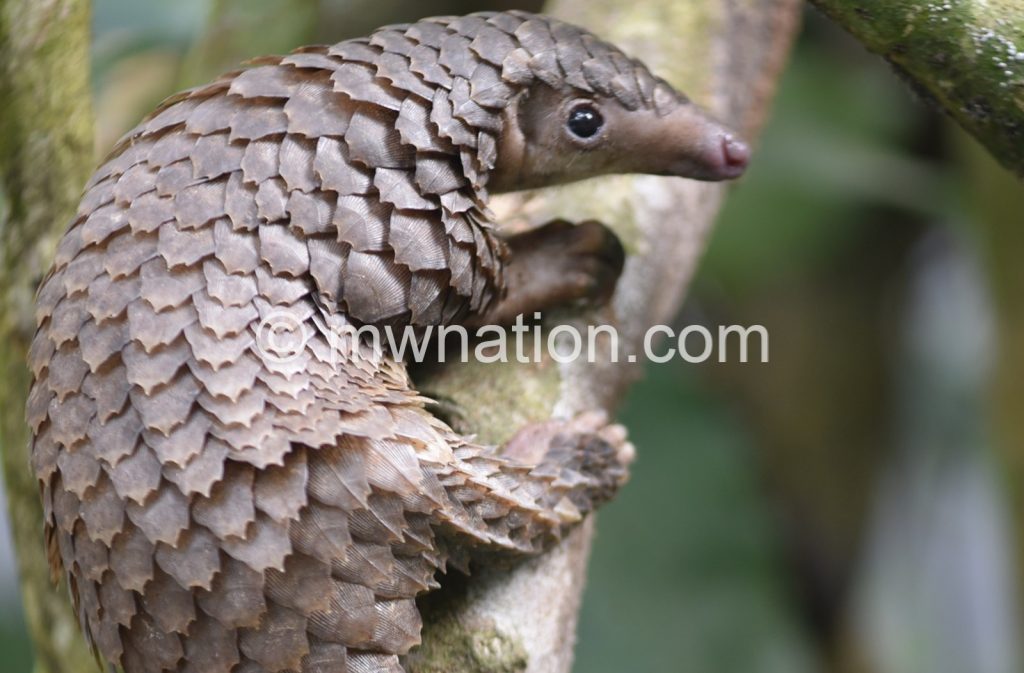Pangolin trafficking on the rise
Malawi has detected a steep surge in pangolin trafficking since 2017 when Parliament passed strict wildlife laws to protect endangered animals.
According to director of parks and wildlife Brighton Kumchedwa, pangolin-related arrests nationwide have leapt from just seven to 83 since 2017.

The award-winning wildlife protector said Malawi has become a superhighway for regional wildlife syndicates whose trade routes mostly point towards high demand in China.
He explained: “Malawi has a small population of pangolins which we don’t know because these animals are extremely elusive.
“However, in 2017 and 2018, most of the pangolins intercepted were coming from Mozambique and the trend continued in 2019, when we started noticing an increasing number of pangolins trafficked from Zambia and Tanzania.
“This is an escalation and we need to work together to stop criminal gangs from using Malawi as a conduit for illegal trade in endangered species.”
Kumchedwa described the trafficking of pangolins as an emerging regional challenge, calling on Malawians and neighbouring nations to jointly tackle this wildlife crime the same way they are fighting illicit ivory trade which has more than halved the country’s elephant population in the past two decades.
The call is in line with the push for regional intergration so the Southern Africa Development Community (Sadc) member States can tackle shared problems—including conservation of nature—as a united bloc.
Kumchedwa explained: “Malawi will this year be the chair of Sadc, so we have an opportunity to lead regional efforts to combat wildlife crimes by engaging fellow member States to work closely with each other in this fight.
“The good thing is that we are already working hand in hand with our neighbours, including Mozambique, Zambia and Zimbabwe. We just have to go full-throttle to ensure all member states are working together to make wildlife crimes history.”
He was speaking in an online press briefing marking the World Pangolin Day set aside to celebrate efforts to protect the world’s most trafficked animal.
Also in attendance was Samantha Nampuntha, from Lilongwe Wildlife Trust, who pledged the conservatory’s continued support for government’s effort to ensure Malawi is no longer southern Africa’s top transit hub for wildlife traffickers.
In 2017, the trust partnered government in lobbying lawmakers to pass the revised Wildlife Act which prescribed up to 30 years in jail for poachers and traders in endangered animals.
Cites, the Convention on International Trade in Endangered Species, red-lists pangolins among animals on the brink of extinction.
The species has faced some 80 percent decline in the past 20 years, which is attributed to China’s appetite for its meat and skin.
Last year, Malawi busted the Lin-Zgang gang found in possession of pangolin scales wholly made of keratin like human hair.
Some members of the group, who conservationists have described as one of the most notorious Chinese syndicate turning Africa into a haven of wildlife crimes, have been jailed.
Almost 95 percent of the pangolin-related arrests since 2017 have resulted in imprisonments, thanks to specially trained investigators and prosecutors at work to protect biodiversity.





